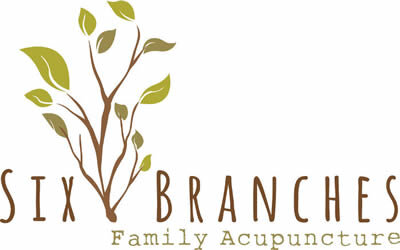Have you been told by your health practitioner that you or your child need to cut gluten out of your diet to address a health concern? Do you want to understand more about why cutting out gluten may help you deal with that health issue? In this post, we answer some common questions that patients ask about gluten sensitivity.
Read moreHow Acupuncture and Herbal Medicine Fit Perfectly Into Your Fertility Puzzle
Chinese medicine is in the news a lot because it has great success in helping women who have been unable to get pregnant. Acupuncture and herbal medicine have been used to help women get pregnant into their 40's, with or without IVF. Whichever method you are using to try to get pregnant, there are a lot of strengths that acupuncture and herbal medicine bring to the fertility puzzle.
Read moreRed Wine, Chocolate, and Coffee: When Is A Good Thing NOT A Good Thing? (Part Two)
Red wine, dark chocolate, and coffee are favorites for many of us, and a number of studies have shown them to have some good effects for your health. Are they always good for you? What does Chinese Medicine say about these three decadences-turned-health foods?
Read moreChinese Medicine Makes Sense Of Irritable Bowel Syndrome
Irritable Bowel Syndrome is a chronic and debilitating gastrointestinal disorder that fits into the category of 'functional' diseases in Western medicine. This basically means that, while there are clear and present symptoms for the patient, Western medicine has not yet figured out the cause of the distress. This kind of disorder ('functional', a wide range of symptoms across systems, partly connected to emotions), is exactly the kind of situation where Traditional Chinese Medicine shines forth. Plus, the British Dietetic Association recently published some dietary guidelines for sufferers of IBS.
Read moreWhat We Put On Our Skin Matters
Screen Shot 2012-03-19 at 4.52.08 PM
As a friend once told me, after finding out that I rarely used lotion or oil on my skin, "Your skin is your biggest organ, you have to keep it healthy".
She was right, of course. Our skin is the largest organ we have. It is our great protector - safeguarding our bodies against bacteria and viruses, helping us hold on to water and keeping us warm, or cooling us off when we're hot. It houses one of our most basic senses - touch - which is so important that babies who don't have skin contact with other mammals fail to thrive and can even die. Our skin also nourishes us by taking the light from the sun and producing Vitamin D (really more of a hormone than a vitamin) which is important for immunity, bone health, digestive health, and more. In Traditional Chinese Medicine, the skin and the spaces between the skin and muscle are governed by the Lung organ system, and this is where the defensive Qi of the body (similar to the body's innate immunity) circulates.
As I started to look for moisturizers to put on my skin, I was shocked to learn more about all the ingredients that go into cosmetics and personal care products. Recent research in the news about the link between parabens and breast cancer, as well as the connection between hair relaxer use and the risk of uterine cancer in African-American women, has brought the issue of safe cosmetics to the fore again.
Unlike with foods and drugs, the FDA does not pretest the personal care products turned out by the $30 billion cosmetics industry. Instead, it relies on the companies making the products to ensure the ingredients they use are safe. The Environmental Working Group of Washington, D.C. recently petitioned the Food and Drug Administration to issue warning labels on 356 personal-care products that contain ingredients that have not been thoroughly tested. Lucky for us, the Environmental Working Group has created a database where you can check you personal-care product for toxicity!>
Here's a few tips they offer for reading the labels of your skin care products:
Choose Fragrance-Free - Two years ago, the International Fragrance Association published a list of ingredients that its members reportedly use to make fragrances for consumer products. Of the 3,163 chemicals listed, several stand out as particularly toxic: phthalates, octoxynols and nonoxynols. (Phthalates are potent hormone disruptors linked to reproductive system birth defects in baby boys. Octoxynols and nonoxynols break down into persistent hormone disruptors, as well.) Look for these words as well: "FRAGRANCE," "FD&C," or "D&C." which companies can list in lieu of the actual fragrance ingredients.
A short list of other ingredients to avoid are:
Words ending in "paraben"
ingredients that start with "PEG" or have an "-eth" in the middle (e.g., sodium laureth sulfate)
DMDM hydantoin
Imidazolidinyl urea
Methylchloroisothiazolinone
Methylisothiazolinone
Triclosan
Triclocarban
Triethanolamine (or "TEA")
Phew! That's a lot to remember when you're in the store. We can group a few of them together - if you can remember to 'Tri' to stay away from the "methyl-ones", that takes care of half the list. And once again, you can look up products on EWR's cosmetics database to find out their relative toxicity. Here's a two minute video from EWR about commonly found ingredients in cosmetics and personal-care products:
Tic-Toc, The Body's Clock Is Important For Your Health
It's been said that timing is everything, and that may be particularly true when it comes to the body's ability to fight off disease. Chinese and Western medicines both have a concept of a "body clock" with cycles of internal timing and regulation. New research published in the February issue of the journal Immunity shows that the success of our immune defense depends in part on our "body clock."
Read more




